Meet Marcelo Noronha, the unstoppable force and brain behind Mr. Turing, an AI (artificial intelligence) business assistant revolutionizing how companies work with their data. In an increasingly AI-driven world, Mr. Turing is a true game-changer, providing companies with a powerful tool to unlock the full potential of their internal data to save time, knowledge and money.
Like Alan Turing, the trailblazing mathematician and computer scientist who laid the foundation for modern computing and artificial intelligence by cracking the German Enigma code during World War II, Noronha is pushing the boundaries of what’s possible with AI.
What sets Mr. Turing apart from the competition is its unique ability to manage all of a company’s information in one place. With its innovative Alan technology, Mr. Turing helps companies process, interpret, and manage the knowledge generated from their internal data more effectively than ever before.
So, who is the mastermind behind Mr. Turing, and what inspired him to create it? We sat down with Noronha to discover his inspiration, the unique benefits of their AI-powered business assistant, Alan, and the measures they have put in place to safeguard sensitive information. If you’re interested in the intersection of entrepreneurship and AI, read on to uncover Noronha’s insights and discover the next big thing in business technology.
What inspired you to build Mr.Turing?
As a tech entrepreneur for 20+ years, all the companies I worked for used image processing for document management. However, every company had a gap in delivering value to its customers; we would process the documents but only deliver 20% of the value from all the information contained within them. This always bothered me because it was a lot of work for very little delivery. At the time, the technologies weren’t ready to process, interpret, and generate knowledge. When I came across the AI technique of Language Processing, I realized that this was where I could change the game.”
Tell us how your AI-powered business assistant (Alan) works.
Imagine needing information across different types of media: documents, videos, audio, websites, meeting minutes, and other sources. Now, imagine all of this scattered across multiple platforms within a company. How would you access and leverage it to improve your business processes? It would be practically an endless search, wouldn’t you agree?
This is the challenge we addressed with Alan, a tool that can manage and generate knowledge for companies, integrate with any system and process any type of media. After processing, interpreting and integrating where the information is, Alan is ready to respond naturally to the needs of those looking for information. And the best part of all of this is that this knowledge is secure within the company, so they can make informed decisions on how to use it.
How does Alan differ from other data management solutions on the market?
Our differential is the ability to manage all knowledge produced by company teams in a single platform, Alan. We can make connections between meeting videos, emails, projects, dialogues, and communication platforms.
With the increasing focus on data privacy and security, how do you ensure that Alan adheres to data protection standards? What measures have you put in place to safeguard sensitive information?
At Mr. Turing, we place great emphasis on data privacy and security. To ensure that we comply with data protection standards, we have implemented a range of measures to safeguard sensitive information. These include encryption, regular security audits, access controls, and user authentication. We are committed to staying up-to-date with evolving data privacy regulations and continuously improving our security practices to protect our users’ data.
How have you leveraged natural language processing to develop Alan? Can you walk us through your approach to training?
We utilized natural language processing (NLP) techniques and cutting-edge AI models to create Alan. Our methodology for training and refining the model involves several stages:
- Data collection: We obtain a diverse set of data from multiple sources, including text, audio, and video content, to ensure a comprehensive understanding of a company’s information;
- Data preprocessing: The collected data is cleaned and preprocessed to eliminate irrelevant or redundant information;
- Model training: The preprocessed data is employed to train our NLP models, with a focus on comprehending context, semantics, and relationships between different pieces of information;
- Fine-tuning: The trained models are refined using reinforcement learning techniques, which enable Alan to enhance its performance by adapting to the specific needs and preferences of each client;
- Evaluation and feedback: Alan’s performance is continually assessed against predefined benchmarks, and any insights gleaned from user feedback are utilized to further improve the model.
With the recent advances in natural language processing and conversational AI, how do you see your assistant evolving? Are there any new features or functionalities you’re excited to roll out?
The recent advancements brought by OpenAI with ChatGPT have given Mr. Turing the missing piece of the puzzle. We expected this to come around mid-2025, and it has been accelerated, which is great news!
We believe that we operate at the process layer of companies, with the capability of integrating, processing, and interpreting all the information that flows within them. With this, we can more precisely control what the conversational part of GPT models can synthesize without attempting to fabricate any information from non-existent data.
How do you balance the need for automation and efficiency with the importance of maintaining human oversight and control over data management processes?
Finding a middle ground between the need for automation and efficiency and the importance of maintaining human oversight and control is crucial.
This can entail utilizing automation technologies such as Artificial Intelligence to boost the efficiency of data management processes while also keeping a check on human oversight and control to ensure the accuracy and quality of the managed data.
Furthermore, it is crucial to ensure that data management processes are well-documented and that policies and procedures are adhered to consistently to uphold data integrity and regulatory compliance.
Can you discuss future plans or goals, such as expanding into new industries or integrating new technologies?
We plan to expand into new industries such as healthcare, finance, law, and education. To remain at the forefront of AI and NLP technologies, we are enhancing collaboration features, developing advanced personalization features, and incorporating environmentally-friendly strategies into our operations and product offerings.
What advice would you give an aspiring entrepreneur in the AI space?
No matter the industry, the first step is to assemble a strong team with a common purpose. Then, it’s important to understand that building AI applications requires time, effort, and a great deal of persistence. Success cannot be guaranteed simply by utilizing AI technology, and it’s crucial to be ready to adjust and improve your ideas as you progress, given the rapidly evolving nature of the field.


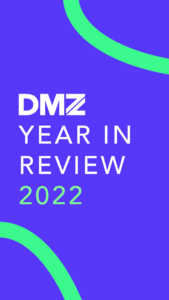
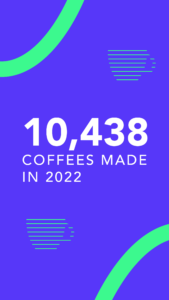
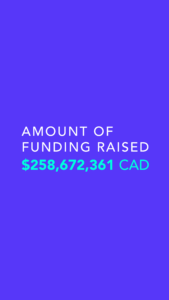
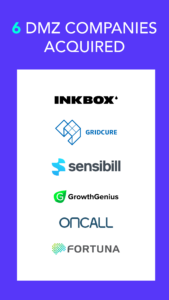
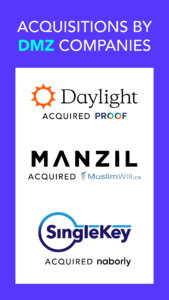
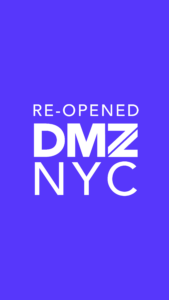
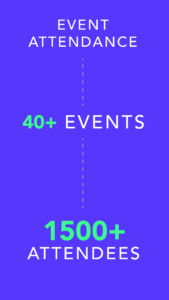
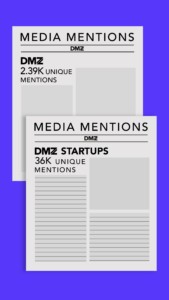
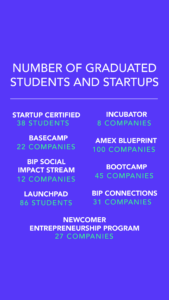
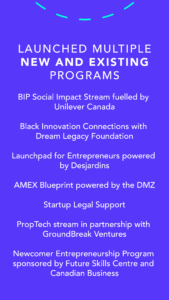
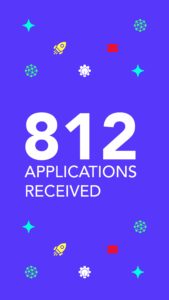



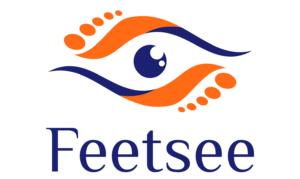

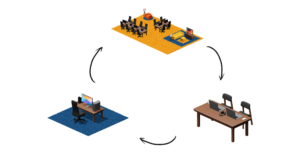

 Charlotte: “I completed my 4-month internship for my Masters in Professional Communication at Toronto Metropolitan University at the DMZ.
Charlotte: “I completed my 4-month internship for my Masters in Professional Communication at Toronto Metropolitan University at the DMZ. 